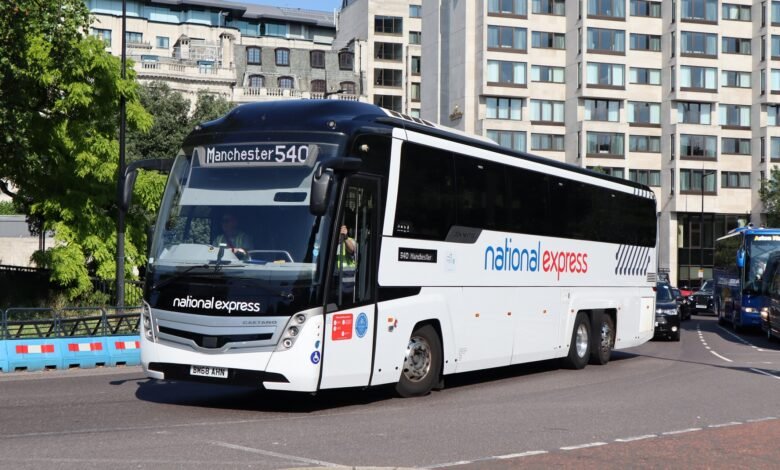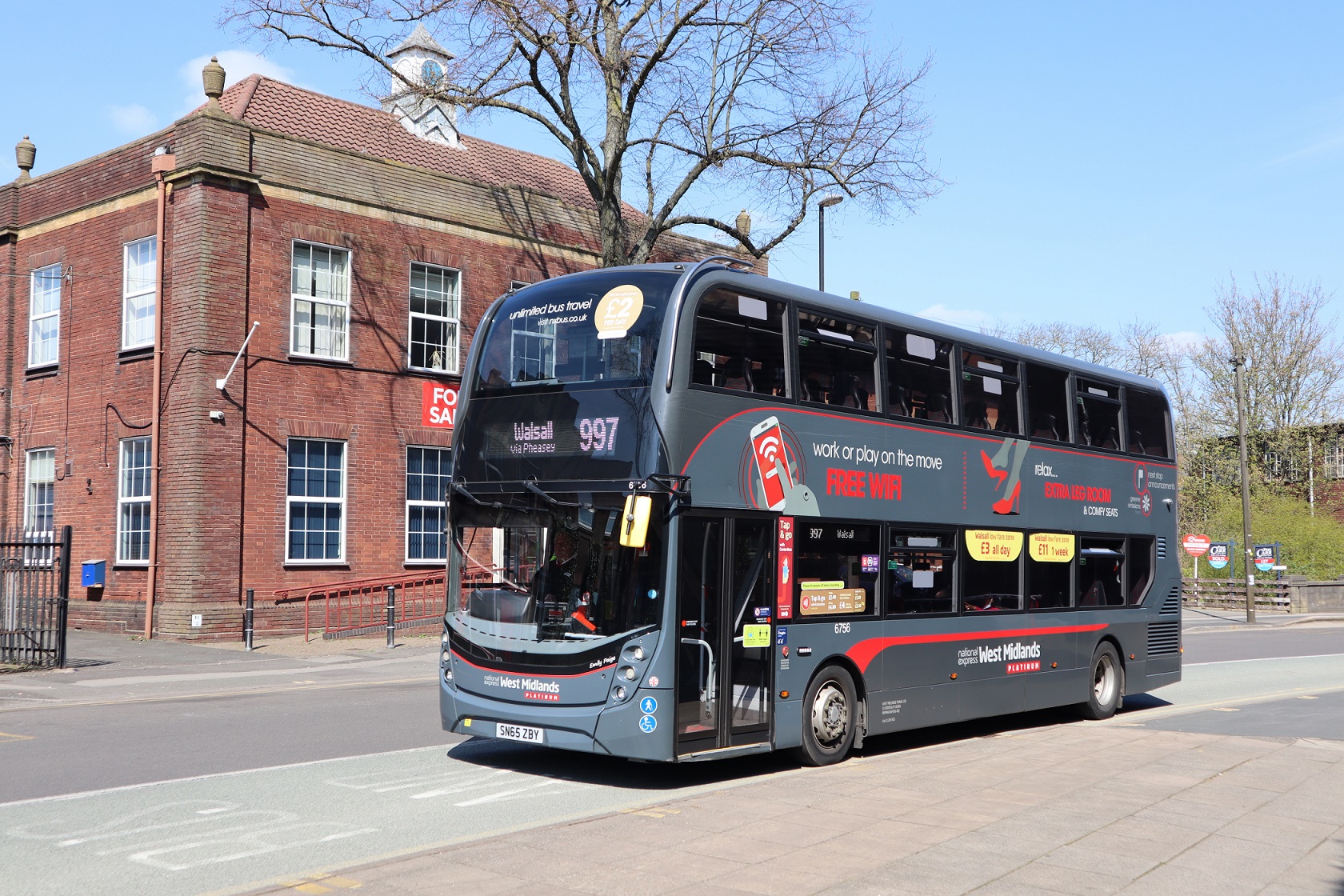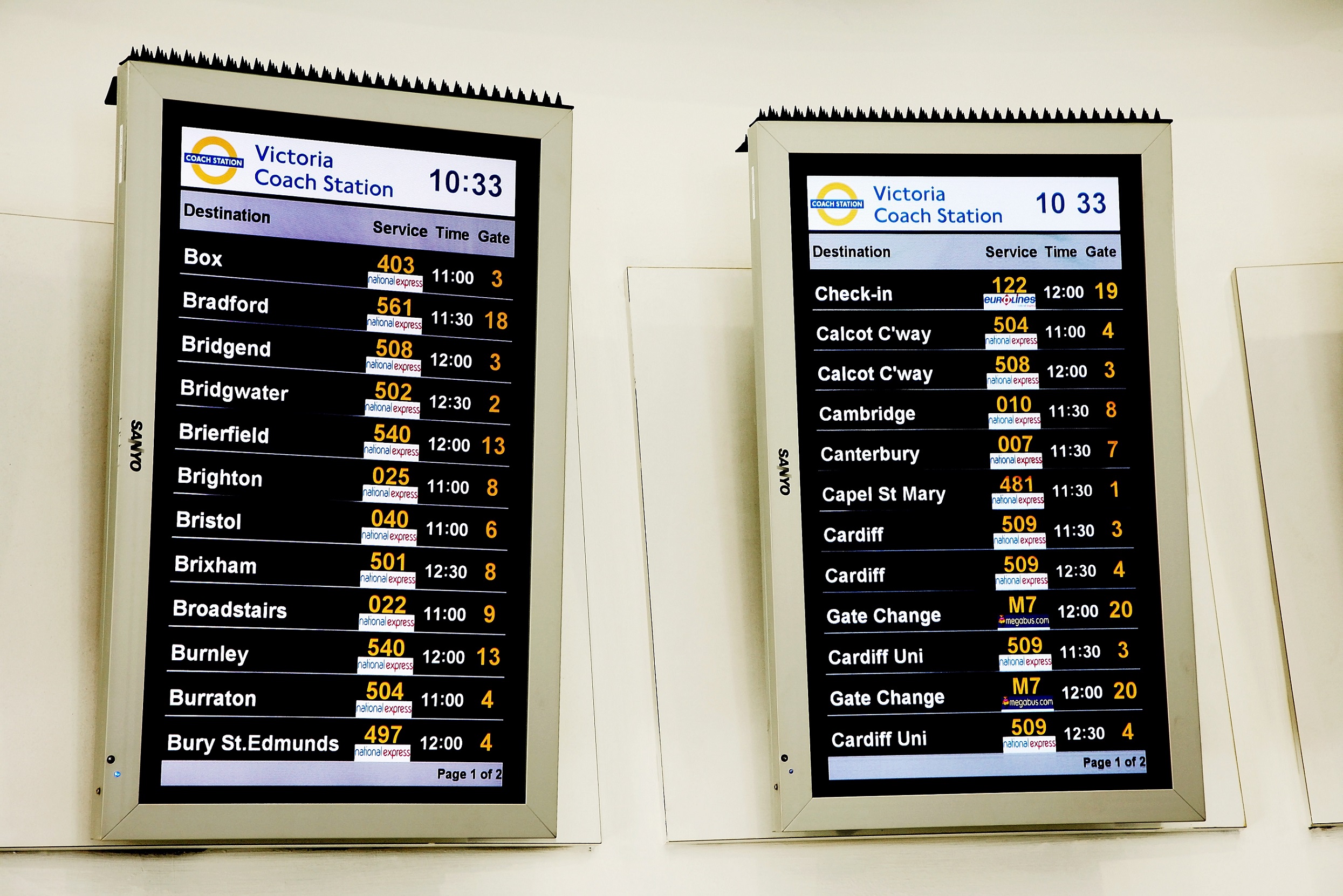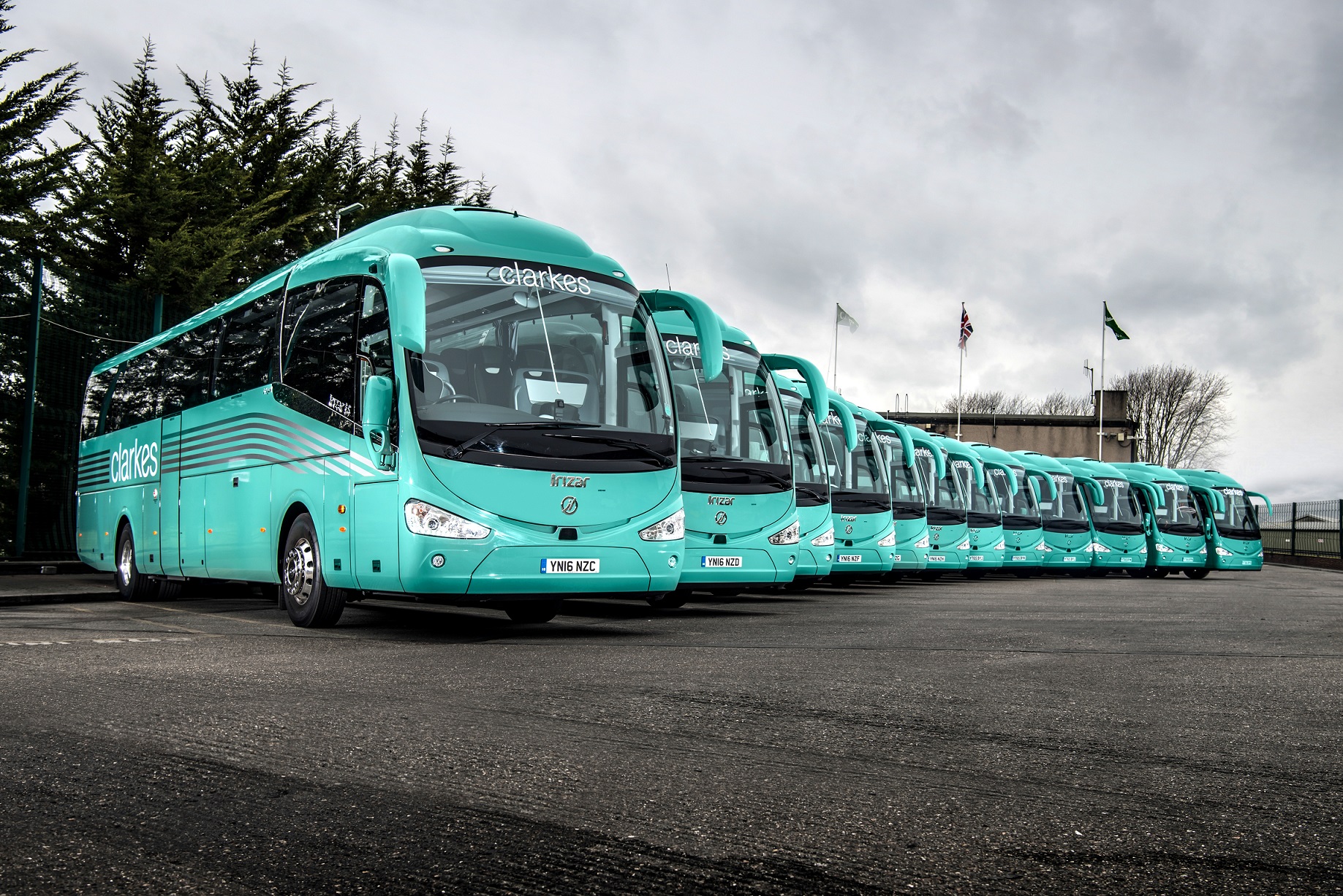Data and investment: A work in progress for National Express

National Express is unique in the UK road passenger transport industry. A major urban bus operation in the West Midlands sits alongside coach deployment on scheduled, business-to-business (B2B) and private hire services, all in significant volumes. To oversee delivery of those products, and the group’s rail operations in Germany, former energy industry leader Alex Jensen joined as CEO in 2023.
Strengths, opportunities and headwinds within the UK businesses vary. Ms Jensen acknowledges the challenges faced by the National Express Transport Solutions arm, and that the National Express West Midlands bus business may ultimately come under scope of bus franchising.
But she also sees potential in all parts of the National Express UK business. Scheduled coach is in an ever-strengthening position, scope for bus service growth via franchising outside the West Midlands is crystalising, and awareness among corporate clients of the value of B2B shared transport services is on the up.
Decarbonisation of long-distance services is at an earlier stage than the same work in bus, but the first hydrogen fuel cell-electric coach for National Express is expected this year.
Two keys to the future for National Express
Speaking from a strategic footing, Ms Jensen highlights data and investment as keys to the future of service delivery by National Express. They two sit cosily. Data is required for a business to fully understand its customers, and investment will track that knowledge base.


Elevating coach and bus to a default first choice still has a way to go, Ms Jensen continues. Achieving it requires investment.
The extent of spending currently planned by the industry and its stakeholders is unlikely to be enough to deliver on such an aspiration, but Ms Jensen cautions that ‘big ticket’ items such as infrastructure should not dominate investment decisions. Coaxing customer behaviour and “revenue-side” actions are equally important factors.
“To get the scale of change we are looking for, we cannot stick with a ‘build it and they will come’ approach,” she adds. “We must get behaviour change as well.” But confidence is key to unlocking the required investment. Ms Jensen thus supports a call from the Confederation of Passenger Transport for long-term government funding commitments to the bus industry.
Partnership underpins future of bus operation
Growing momentum behind bus franchising has scope to blunt investment appetite. Ms Jensen believes that such worries can be mitigated if the right partnerships are put in place ahead of any shift to reregulation.
“Does [potential for franchising] mean that you do not invest in revenue generating infrastructure – or do you, and then hand it over? Do you invest in hydrogen and then have a deal where you can pass it through to the next model? These are big questions. When you have the right partnerships, you can have the awkward discussions to make sure you get clarity.”


While those are considerations for incumbent operators that deal with franchising, Ms Jensen believes that such a regulatory mechanism can work. She notes that its rollout in Greater Manchester has created some of the conditions that she advocates. “It is for local authorities to determine what is right for their communities. We will then choose whether it is the right framework within which National Express can participate, and win.”
Data: Macro to micro shift for National Express
Data is key to National Express’s scheduled coach operation. Much is still to be done with data there, Ms Jensen continues. Even so, leverage has already delivered positives; data has allowed route and schedule optimisation, and work on sales. 90% of transactions are carried out via digital channels.
“But there is more we can do. One of those things is looking at data from an end-to-end standpoint. Another is with customer data. Taking it from macro to micro, we can talk to customer groups. That is not as advanced as I have seen it in other sectors, where you might have loyalty programmes, or where you are speaking to someone who has a Pret app. That is much more personalised.”
National Express has seen scheduled coach service patronage return strongly. Industrial relations difficulties in rail have worked to its advantage, but the business points out that a respectable percentage of customers attracted from rail have stayed with coach. Ms Jensen sees further scope for growth in the scheduled market, but customer needs will be at the forefront of that.
“What we need to do even more of is rather than starting with routes, start from the point of view of where our customers are, their needs, and what their alternatives are and whether they are satisfied with them. Does that then create an opportunity for us?”


National Express Transport Solutions right-sizing underway
Change at National Express Transport Solutions has been significant since early 2023. Its tourism based Touromo brand has gone, and in the latter half of last year, a decision was made to close the Clarkes of London base in Lower Sydenham and The Kings Ferry’s operating centre in Gillingham.
Ms Jensen believes that there is “a lot of growth potential” for the sectors that Transport Solutions serves, although any such opportunities must be right for National Express. She adds that scope to work with partner operators is now clearer than before in the delivery of Transport Solutions work.
“We want to continue to right-size that business and make sure it is in the right shape for us to capture opportunities,” she continues. “We have some strong brands there, and that is another part of the strategy that we are still thinking through.
“Our businesses are always evolving, and [Transport Solutions] is not yet in the place that it can be.” While closure of Gillingham and Lower Sydenham is underway, the Clarkes and The Kings Ferry brands will be kept. Depots are going as part of work to ensure that National Express has assets and drivers in the right place. The strategy around Transport Solutions is thus still evolving, she continues.


However, B2B is seen as an area of major growth potential. The coach operation serving this year’s Glastonbury Festival will be much bigger than that in 2023; 110 locations will have direct links compared to 70 last year. “That is an example of a great B2B relationship,” Ms Jensen notes. She also highlights collaboration with Luton Airport after a fire in a car park there during October 2023.
“It was an example of a B2B relationship where we did not just execute the service we were asked to; we went beyond and were there when there was an evolving need.” Within the last few weeks, National Express has renewed B2B contracts with Luton Airport and the Dublin Airport Authority, which in both cases are for scheduled services to the travel hubs.
Hydrogen coach is on the horizon
B2B customers are showing mounting interest in the environmental footprint of services delivered on their behalf. National Express is already a market leader in the shift to zero-emission buses via its operations in the West Midlands, and it has an ambition for its UK coach and bus fleets to have completed that move by 2035.
The first zero-emission coach to carry the operator’s white livery for scheduled services is due from Caetano this year. It will be powered by a hydrogen fuel cell. Further details of that prototype are awaited, and it is not yet certain that it will enter service in 2024. “I am excited about trialling the hydrogen coach,” says Ms Jensen. “We need to understand how it performs and what the options [for zero-emission] are.”
There is no commitment to hydrogen as the long-term solution for the National Express coach fleet.
While operational flexibility is a consideration, some vehicles are ‘captive’ to routes such as airport services, removing the need for ‘go anywhere’ capability. That could lend itself to batteries, although Ms Jensen notes that there are “big questions” around how many energy sources are desirable in the long term.
Thus far, unanswered questions sit alongside a combination of broadly defined strategy and growth potential. As with the rest of the coach and bus industry, the coming years for National Express will be eventful.
Source link





